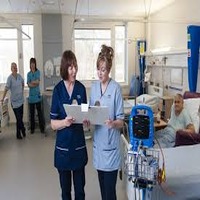


Scotland is a breathtaking destination known for its rich history, stunning landscapes, and vibrant cities like Glasgow and Edinburgh.
Scotland is a breathtaking destination known for its rich history, stunning landscapes, and vibrant cities like Glasgow and Edinburgh. Every year, thousands of tourists flock here to explore its beauty. However, one common question many visitors have is: Is healthcare free for tourists in Scotland? Understanding healthcare access while traveling is crucial, so let’s break it down in detail.
Scotland operates under the National Health Service (NHS) Scotland, which provides free healthcare to residents. But what about tourists? If you’re exploring Glasgow and need a ride, a Glasgow taxi can quickly get you to your destination—but what if you need medical help instead? The rules for tourists accessing free healthcare depend on several factors, including your nationality and the nature of your visit.
In life-threatening situations, Scotland provides free emergency care to everyone, regardless of nationality. If you experience a severe injury, heart attack, or other critical conditions, visit the nearest Accident & Emergency (A&E) department. You won’t be charged for emergency treatment, including ambulance services.
For non-urgent medical issues, the rules differ. Tourists from the European Economic Area (EEA) or countries with a reciprocal healthcare agreement (like Australia and New Zealand) may receive free or reduced-cost treatment if they carry a European Health Insurance Card (EHIC) or Global Health Insurance Card (GHIC).
Visitors from countries without such agreements (e.g., the U.S., Canada, or most Asian nations) will likely need travel insurance to cover medical expenses. Without insurance, you may face significant bills for doctor visits, prescriptions, or hospital stays.
If you need ongoing care, some GP (General Practitioner) clinics allow tourists to register as temporary patients. However, not all clinics offer this, so call ahead to confirm.
For minor illnesses, NHS walk-in centers and pharmacies can provide advice and over-the-counter medications. Pharmacists in Scotland are highly trained and can recommend treatments for common ailments.
If you prefer faster access or aren’t eligible for NHS care, private clinics are available. These require payment, so having travel insurance is advisable.
In Scotland, NHS prescriptions are free for residents, but tourists typically pay unless exempt under a reciprocal agreement. Always carry your EHIC/GHIC card or proof of insurance when visiting a pharmacy.
Since healthcare isn’t universally free for tourists, comprehensive travel insurance is essential. Ensure your policy covers:
Emergency medical treatment
Hospitalization
Medical evacuation (if needed)
Repatriation in extreme cases
Without insurance, a simple doctor’s visit could cost £100-£200, while hospitalization may run into thousands of pounds.
If you land in Edinburgh, arranging Edinburgh Airport transfers can help you reach your accommodation smoothly. But knowing your healthcare rights is just as important. Always carry:
Your passport
EHIC/GHIC (if applicable)
Travel insurance documents
Emergency contact numbers
While Scotland offers free emergency healthcare to all, non-emergency treatment isn’t always covered for tourists. Visitors from certain countries may benefit from reciprocal agreements, but most travelers should secure insurance before their trip. By preparing in advance, you can enjoy Scotland’s beauty without worrying about unexpected medical costs.
✅ Emergency care is free for all tourists.
✅ Non-emergency care may require payment or insurance.
✅ EHIC/GHIC holders get reduced-cost/free treatment.
✅ Always get travel insurance for full coverage.
Planning a trip to Scotland? Stay informed, stay safe, and enjoy your adventure worry-free!
